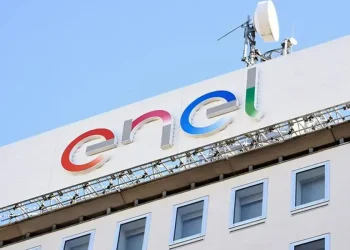Wall Street’s main indexes rose on Friday and were set for monthly gains after a key inflation report reiterated moderating price pressures, cementing bets for an interest-rate cut at the U.S. Federal Reserve’s upcoming meeting in September.
The Personal Consumption Expenditure index, the central bank’s preferred inflation gauge, rose 2.5% in July on an annual basis compared to an estimate of 2.6%, according to economists polled by Reuters. On a monthly basis, it rose 0.2% as expected.
Among rate-sensitive megacaps, Amazon.com and Microsoft gained 1.3% and 0.7%, respectively. Chip stocks rose; Broadcom added 3.4% and Advanced Micro Devices climbed 1.4%, aiding the Philadelphia SE
Semiconductor index’s 2.2% rise.
Friday’s PCE report is the last before the Fed’s September meeting and follows Chair Jerome Powell’s comments last week expressing support for an imminent policy adjustment.
“Powell’s speech at Jackson Hole reiterated several times that we’re approaching our desired target. Nothing here is going to cause me to change anything,” said Andre Bakhos, managing member at Ingenium Analytics.
“We still have the jobs report coming out next Friday, which would even be a greater concern.”
Odds of a 25-basis-point reduction stood at 69.5%, according to the CME Group’s FedWatch Tool, while those of a 50-bps reduction were at 30.5%.
Nasdaq leads Wall St higher after GDP data
Global markets are nearing the end of a tumultuous month for riskier assets, after signs of a sudden moderation in the labor market sparked fears of a quicker-than-expected slowdown in the world’s largest economy in early August. The influence of the Japanese yen carry trade worsened the rout.
Risk-taking has improved since then, with the Dow near record highs and on track for monthly gains, as subsequent data including Thursday’s upward revision to economic growth soothed investor nerves.
At 09:44 a.m. the Dow Jones Industrial Average rose 114.66 points, or 0.28%, to 41,449.71, the S&P 500 gained 36.45 points, or 0.65%, to 5,628.41 and the Nasdaq Composite gained 156.25 points, or 0.89%, to 17,672.68.
Ten of the 11 S&P 500 sectors advanced, led by a 1% rise in tech stocks.
The tech-focused Nasdaq and the S&P 500 closed lower on Thursday after Nvidia failed to match sky-high investor expectations, despite upbeat results and a broadly in-line forecast. The AI-chip bellwether was up 1.7% after a 6.4% drop in the previous session.
The S&P 500 is close to an all-time high, poised for a monthly gain of 1.8%, while the Nasdaq is up 0.3% in August.
Marvell Technology jumped 6.3% after forecasting third-quarter results above estimates.
Ulta Beauty slid 4.4% after trimming its annual results forecasts.
Intel rose 5.9% following a report that it was exploring options which could include a merger or a split.
Dell Technologies advanced 2.5% after lifting its annual revenue and profit forecasts.
Trading volumes are expected to thin ahead of the extended weekend due to the Labor Day holiday.
Advancing issues outnumbered decliners by a 3.15-to-1 ratio on the NYSE, and by a 2.43-to-1 ratio on the Nasdaq.
The S&P 500 posted 49 new 52-week highs and one new low, while the Nasdaq Composite recorded 40 new highs and 20 new lows.
Wall Street’s main indexes rose on Friday and were set for monthly gains after a key inflation report reiterated moderating price pressures, cementing bets for an interest-rate cut at the U.S. Federal Reserve’s upcoming meeting in September.
The Personal Consumption Expenditure index, the central bank’s preferred inflation gauge, rose 2.5% in July on an annual basis compared to an estimate of 2.6%, according to economists polled by Reuters. On a monthly basis, it rose 0.2% as expected.
Among rate-sensitive megacaps, Amazon.com and Microsoft gained 1.3% and 0.7%, respectively. Chip stocks rose; Broadcom added 3.4% and Advanced Micro Devices climbed 1.4%, aiding the Philadelphia SE
Semiconductor index’s 2.2% rise.
Friday’s PCE report is the last before the Fed’s September meeting and follows Chair Jerome Powell’s comments last week expressing support for an imminent policy adjustment.
“Powell’s speech at Jackson Hole reiterated several times that we’re approaching our desired target. Nothing here is going to cause me to change anything,” said Andre Bakhos, managing member at Ingenium Analytics.
“We still have the jobs report coming out next Friday, which would even be a greater concern.”
Odds of a 25-basis-point reduction stood at 69.5%, according to the CME Group’s FedWatch Tool, while those of a 50-bps reduction were at 30.5%.
Nasdaq leads Wall St higher after GDP data
Global markets are nearing the end of a tumultuous month for riskier assets, after signs of a sudden moderation in the labor market sparked fears of a quicker-than-expected slowdown in the world’s largest economy in early August. The influence of the Japanese yen carry trade worsened the rout.
Risk-taking has improved since then, with the Dow near record highs and on track for monthly gains, as subsequent data including Thursday’s upward revision to economic growth soothed investor nerves.
At 09:44 a.m. the Dow Jones Industrial Average rose 114.66 points, or 0.28%, to 41,449.71, the S&P 500 gained 36.45 points, or 0.65%, to 5,628.41 and the Nasdaq Composite gained 156.25 points, or 0.89%, to 17,672.68.
Ten of the 11 S&P 500 sectors advanced, led by a 1% rise in tech stocks.
The tech-focused Nasdaq and the S&P 500 closed lower on Thursday after Nvidia failed to match sky-high investor expectations, despite upbeat results and a broadly in-line forecast. The AI-chip bellwether was up 1.7% after a 6.4% drop in the previous session.
The S&P 500 is close to an all-time high, poised for a monthly gain of 1.8%, while the Nasdaq is up 0.3% in August.
Marvell Technology jumped 6.3% after forecasting third-quarter results above estimates.
Ulta Beauty slid 4.4% after trimming its annual results forecasts.
Intel rose 5.9% following a report that it was exploring options which could include a merger or a split.
Dell Technologies advanced 2.5% after lifting its annual revenue and profit forecasts.
Trading volumes are expected to thin ahead of the extended weekend due to the Labor Day holiday.
Advancing issues outnumbered decliners by a 3.15-to-1 ratio on the NYSE, and by a 2.43-to-1 ratio on the Nasdaq.
The S&P 500 posted 49 new 52-week highs and one new low, while the Nasdaq Composite recorded 40 new highs and 20 new lows.










 American Dollar Exchange Rate
American Dollar Exchange Rate